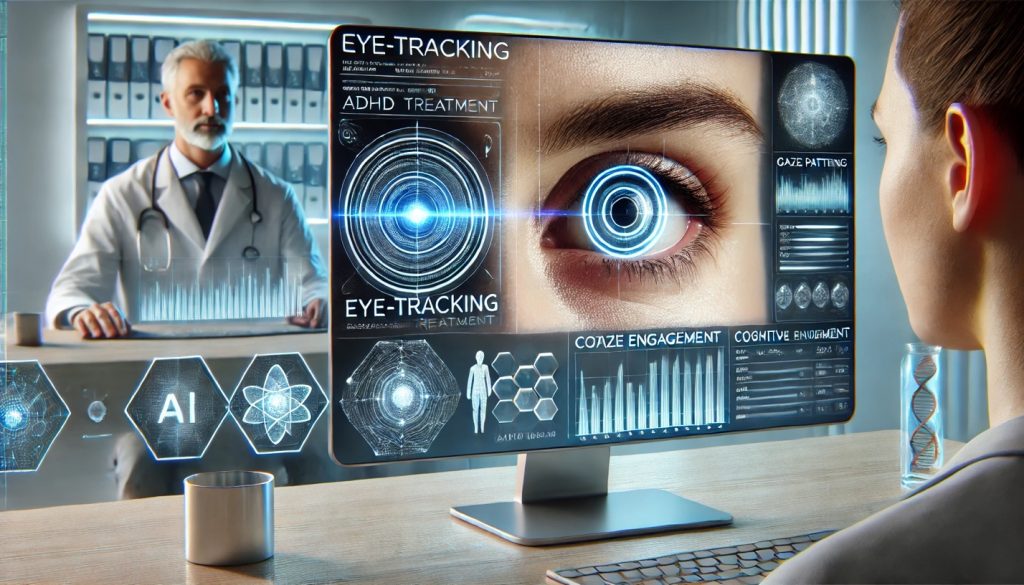HITLAB Team • Febraury 14, 2024
In an age where wearable technology is omnipresent, promising to revolutionize our health and fitness journeys, it’s essential to pause and reflect on its unintended consequences. While smartwatches and fitness trackers offer invaluable insights into our daily activities, they also have the potential to exacerbate mental health struggles, particularly concerning disordered eating behaviors.
Personal anecdotes shared in a recent ABC news piece shed light on the complexities of this issue. Nancy Chen, a fitness coach, initially found empowerment in her Apple Watch, using it to track workouts and stay motivated. However, she soon realized that her constant monitoring of fitness metrics only intensified her struggles with disordered eating, leading to heightened anxiety and unhealthy behaviors.
Sarah Mattis, another fitness enthusiast, echoed similar sentiments. She found herself obsessively tracking her fitness stats, feeling anxious and uncertain about her workouts without her wearable device. Both Nancy and Sarah’s stories highlight the fine line between utilizing technology for self-improvement and becoming enslaved by its metrics, which can detrimentally impact mental well-being.
Research studies further corroborate these personal accounts, revealing a troubling correlation between the use of fitness trackers and an increase in symptoms of eating disorders, particularly among college students. The constant tracking of calories burned and food consumed can fuel obsessive behaviors and lead to feelings of guilt and inadequacy. The incessant monitoring of steps taken, calories burned, and sleep patterns can create a sense of pressure to constantly meet or exceed pre-set goals, leading to heightened anxiety and self-doubt. Individuals may find themselves fixating on achieving the “perfect” metrics, fearing the repercussions of falling short. This anxiety can permeate various aspects of life, affecting sleep quality, relationships, and overall well-being.
In addition, high-tech wearable can also contribute to health data anxiety. Experts caution that while high-tech wearables have the capability to alert users to potential health concerns, this feature may have unintended consequences, potentially exacerbating psychological issues rather than providing assistance. A National Institutes of Health-funded study conducted in 2020 revealed that these devices can significantly impact users’ peace of mind, leading to heightened levels of anxiety. The study’s researchers analyzed the case of a 70-year-old woman diagnosed with atrial fibrillation, a condition characterized by irregular heart rhythm and an increased risk of stroke. Despite wearing a sensitive smartwatch capable of capturing 916 electrocardiography recordings in a year, the woman experienced episodes of anxiety due to the watch’s numerous notifications, which she interpreted as indicators of potential heart problems. Consequently, she initiated 12 unnecessary visits to the emergency room and ambulatory clinics, as well as multiple phone calls to healthcare providers. Regrettably, none of these actions altered her existing treatment plan. Moreover, the constant worry took a toll on her mental well-being, ultimately necessitating six sessions of cognitive behavioral therapy to address the anxiety induced by her smartwatch. As wearable technology becomes increasingly advanced and accessible, it’s imperative to address these psychological implications and find ways to mitigate health data anxiety for a more balanced approach to wellness tracking.
However, there is hope amidst these challenges. Companies producing wearable technology acknowledge the importance of balance and offer recommendations for users to customize their device settings and take breaks when needed. Moreover, individuals are encouraged to prioritize their mental health and well-being, seeking support if they find themselves negatively affected by their use of fitness trackers.
In conclusion, as we navigate the complex landscape of wearable technology and its impact on mental health, it’s crucial to recognize that these devices, while offering valuable insights, also carry significant risks. The personal stories shared and research findings highlighted underscore the need for a nuanced approach to incorporating wearable tech into our lives. By prioritizing mindfulness, seeking support when needed, and maintaining a healthy balance between tracking our physical health and safeguarding our mental well-being, we can harness the benefits of wearable technology while mitigating its potential pitfalls. Ultimately, our journey toward holistic wellness requires us to listen to our bodies, honor our emotions, and make informed choices that prioritize our overall health and happiness in the digital age.
Explore Recent Posts


